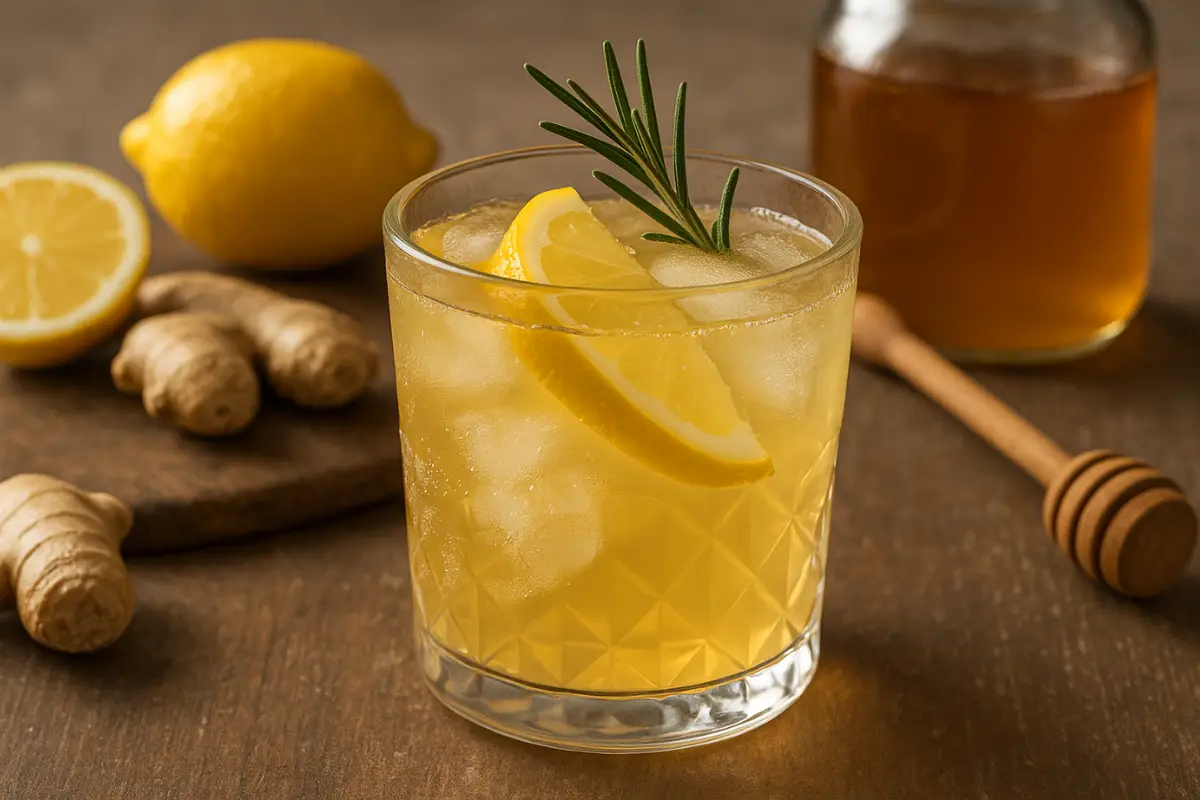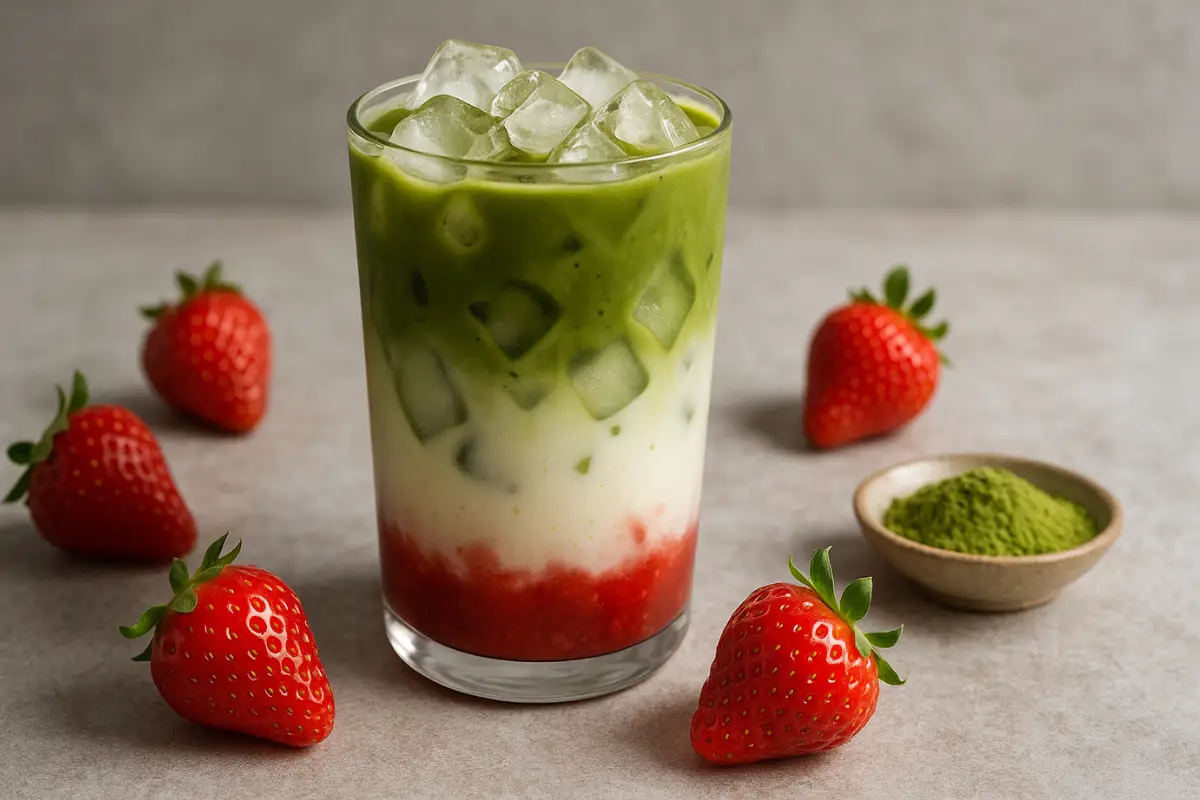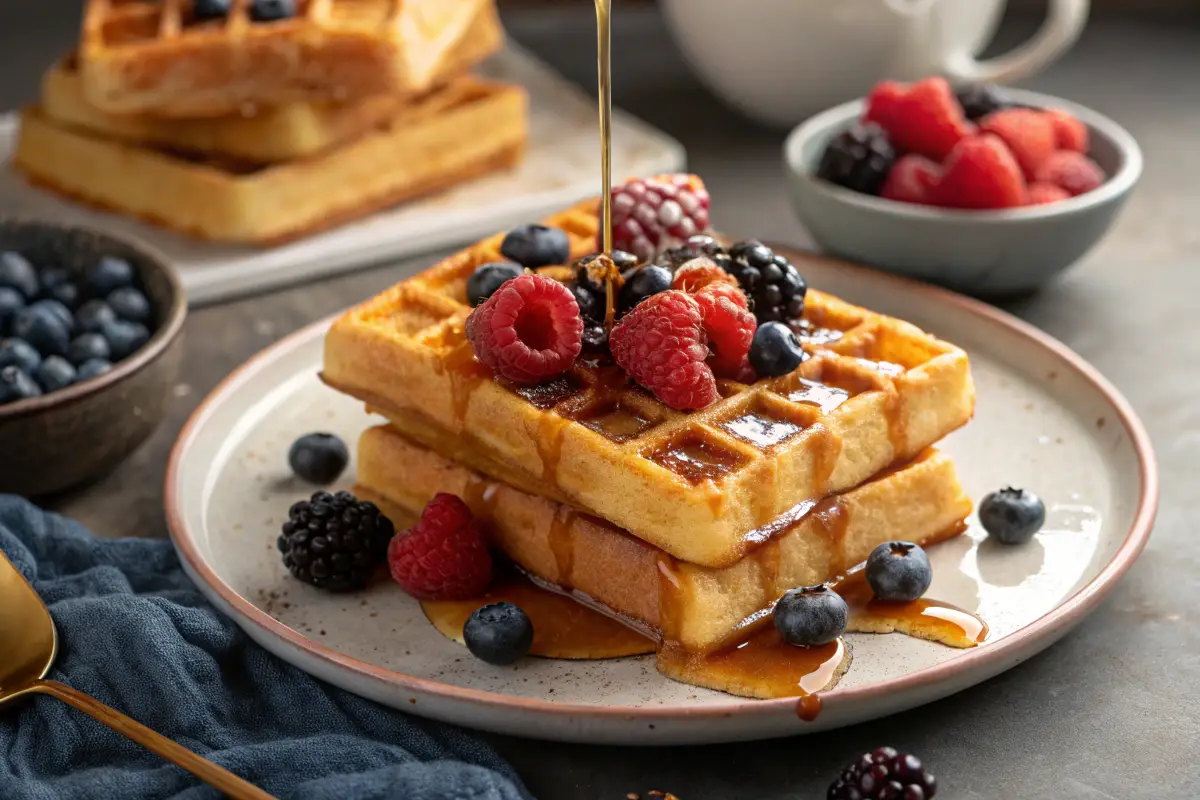Are Morrison Potatoes Gluten Free? If you’re wondering whether Morrison Potato Teddy Shapes fit into a gluten-free diet, you’re not alone. These crispy, teddy bear-shaped snacks are a favorite for kids, making them perfect for lunches or after-school treats.
If you’re mindful of gluten in your snacks, it’s important to check the ingredients. Learn more about gluten-free snack options in our guides on Can I Eat Chips with Celiac Disease?, Gluten-Free Goldfish: Safe Snacks for Celiac Diet, and Best Substitutes for Goldfish Crackers.
Table of contents
What Are Morrison Potatos Teddy Shapes?
Morrison Potato Teddy Shapes are tasty, crunchy snacks. They are made from potato powder. This gives them a flavor and texture that people love.
Their fun shape is perfect for kids. But, it’s key to think about gluten if you have dietary restrictions.
Ingredients Used in Morrison Potato Teddy Shapes
The snacks have potato flour, vegetable oils, and seasonings. They are not labeled as gluten-free. So, it’s important to check the packaging if you have gluten sensitivities.
Flavored varieties might have hidden gluten. Always read the label before eating these snacks.
| Ingredient | Type |
|---|---|
| Potato Powder | Main Ingredient |
| Vegetable Oil | Frying Agent |
| Seasonings | Flavor Enhancer |
Are Morrison Potatos Gluten-Free?
To find out if Morrison Potato Teddy Shapes are safe for those who can’t eat gluten, we need to look closely at the ingredients. The main parts are potato powder, vegetable oil, and seasoning. Even though these seem gluten-free, some flavors might have gluten in them.
Examining the Ingredients for Gluten
The main ingredients don’t have gluten. But, not having a gluten-free verification label makes us wonder about cross-contamination. If these snacks are made in places that also make gluten products, gluten might get into them. This is a big worry for people with celiac disease or severe gluten issues.
Potential Cross-Contamination Risks
Even if the main ingredients are gluten-free, there’s a chance of cross-contamination. If these snacks are made on the same lines as gluten products, gluten might get into them. For those who can’t eat gluten, this is a big risk. Always check the packaging for gluten or wheat warnings. Looking into other options, like those on this helpful site, might be a good idea.
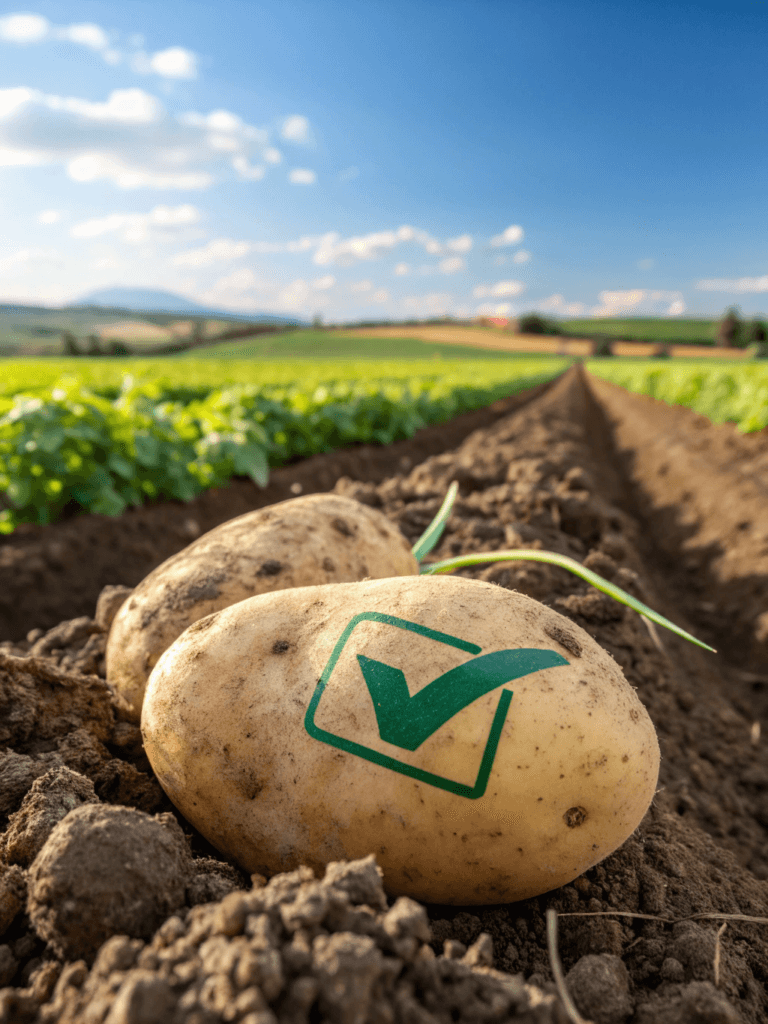
Why Gluten-Free Labeling Matters
Knowing about gluten-free labeling is key for your health. It’s important if you have gluten sensitivity or celiac disease. The FDA says “gluten-free” means a product has less than 20 parts per million (ppm) of gluten. This is safe for most people with gluten issues.
But, remember, this label doesn’t mean it’s completely safe. Cross-contamination can happen.
What Does “Gluten-Free” Mean?
“Gluten-free” means a food meets FDA standards. It gives consumers confidence. Many products, like potato gratins and soufflés, are gluten-free.
For example, 75% of potato gratin in stores uses cornflour instead of wheat. Waitrose’s cheddar and Emmental cheese soufflés are also gluten-free. They use maize starch.
The Importance of Certification for Safety
Getting certification for gluten-free products makes them safer. They meet strict standards from trusted groups. This lowers the risk of contamination.
For instance, Smorgasbord Food’s gluten-free Swedish-style meatballs and Sainsbury’s Leon Nuggets are certified. This is vital as people talk about their gluten struggles. The gluten intolerance community shares tips and product recommendations. For more on gluten-free deli options, check out this resource.
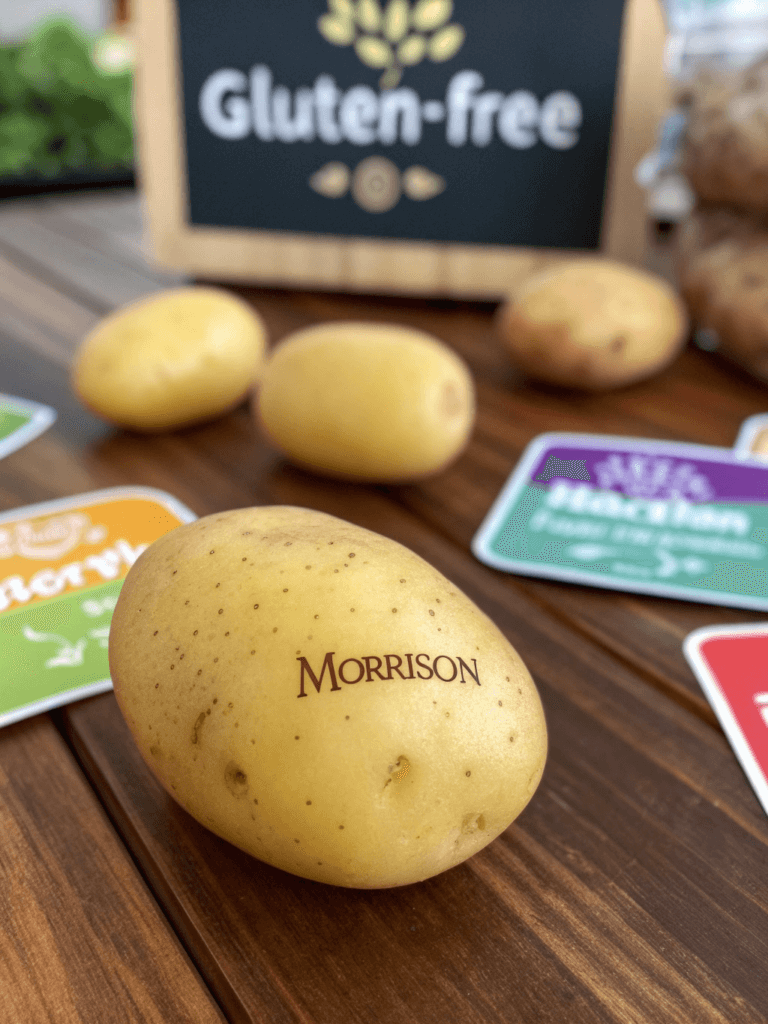
Potential Health Risks for Gluten Sensitivities
It’s key to know the health risks of gluten sensitivities. Celiac disease and gluten sensitivity can cause serious problems if you eat gluten. Knowing these risks helps you stay safe and avoid bad reactions.
Consequences of Consuming Gluten for Celiac Disease
People with celiac disease face big health risks from gluten. Gluten can start an autoimmune reaction that harms the small intestine. This harm stops your body from absorbing important nutrients, leading to issues like:
- Malnutrition
- Bone density loss
- Gastrointestinal issues
- Increased risk of certain cancers
To manage these risks, you must stick to a gluten-free diet. Make sure all your food is gluten-free.
How Cross-Contamination Affects Gluten-Sensitive Individuals
For those with gluten sensitivity, cross-contamination is a big worry. Even a little gluten can cause symptoms like:
- Bloating
- Fatigue
- Digestive distress
It’s vital to be careful and avoid foods that might have gluten. Cross-contamination can happen during making or preparing food. By being proactive about avoiding gluten, you can greatly improve your health and life quality.
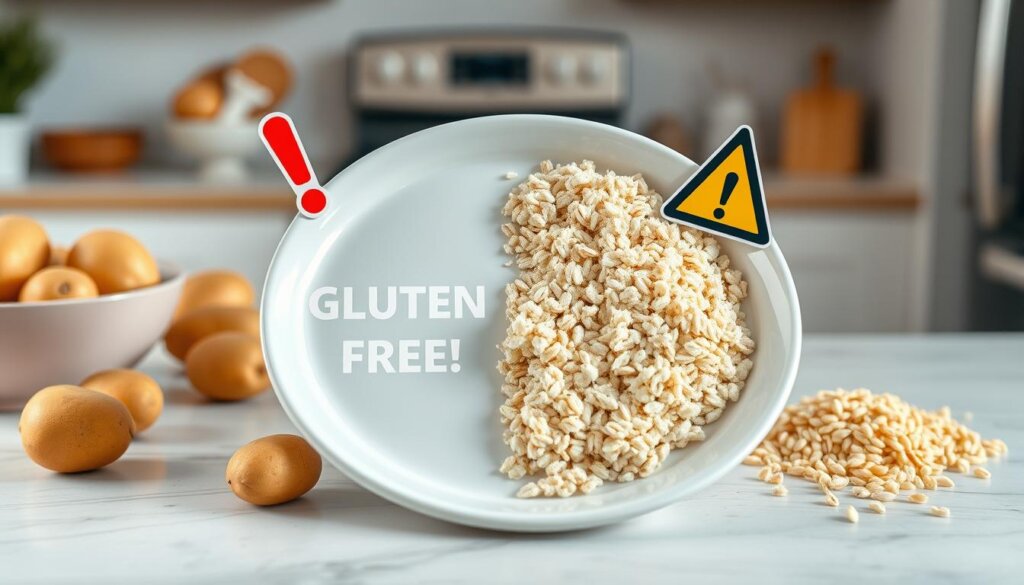
Conclusion
If you’re thinking about adding Morrison Potato Teddy Shapes to your diet, be careful. These snacks might look good, but they’re not safe for everyone. They don’t clearly say they’re gluten-free, and there’s a chance of gluten getting in.
It’s key to make smart choices about what you eat. Reading labels well and knowing where your food comes from is important. Choosing products that are clearly gluten-free helps avoid problems. Look for safe and tasty options at gluten-free choices.
By choosing safe and quality snacks, you’re taking a healthy step. Making good choices helps you and your family stay safe and healthy. It’s all about being informed and caring for your health.
FAQ
What Are Morrison Potato Teddy Shapes?
Morrison Potato Teddy Shapes are fun snacks shaped like teddy bears. They are made from potato powder, vegetable oil, and seasoning. These snacks are crunchy and great for kids’ lunches or quick treats.
Are Morrison Potatos Teddy Shapes gluten-free?
To know if Morrison Potato Teddy Shapes are gluten-free, check the ingredients. The main ingredients are gluten-free. But, flavored versions might have gluten.
What ingredients are used in Morrison Potato Teddy Shapes?
They are made from potato powder, vegetable oil, and seasoning. Always check the labels for gluten, even in flavored versions.
What are the cross-contamination risks?
There’s a risk of cross-contamination during production. This is because gluten-containing products might be processed in the same facility. This could mix gluten into the snacks.
What does “gluten-free” mean?
“Gluten-free” means a product has less than 20 parts per million (ppm) of gluten. This is the FDA’s rule. But, it doesn’t mean the product is completely gluten-free because of cross-contamination.
Why does gluten-free labeling matter?
Gluten-free labeling is key for people with gluten sensitivities or celiac disease. It makes sure food products follow safety rules. This helps avoid gluten exposure.
What are the consequences of consuming gluten for those with celiac disease?
For those with celiac disease, gluten can cause serious health problems. It can damage the small intestine, lead to malnutrition, and cause other stomach issues.
How does cross-contamination affect gluten-sensitive individuals?
Cross-contamination is a big risk for gluten-sensitive people. Even a little gluten can cause problems like bloating, fatigue, and stomach pain. This is true even if the main ingredients are gluten-free.


